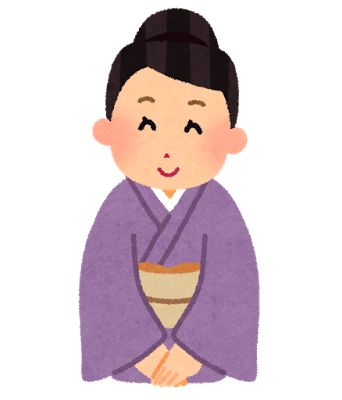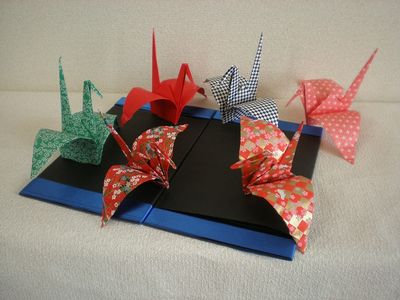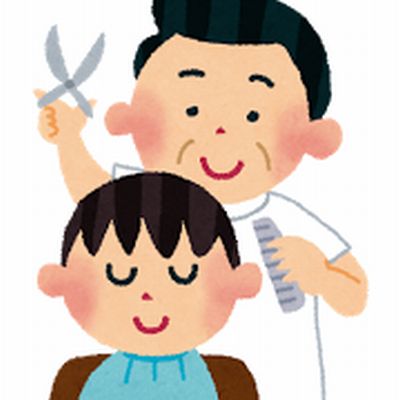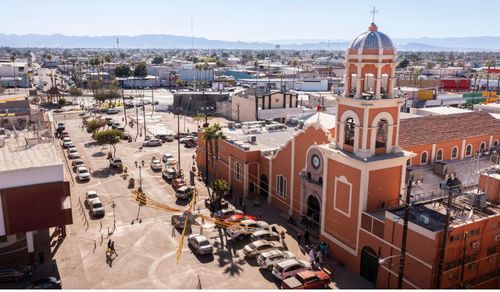こんにちは!Copanです。
今年は、一段と暑さが厳しい夏となりましたね!皆さまは、どのようにお過ごしになりましたか?
国内外にご旅行された方も多いのではないでしょうか。
海外旅行に行くと、つくづく日本のサービスの良さに感心する場面がたくさんありますよね!
今回は、日本のサービスやおもてなしが外国人にどのように思われているかを探るべく、b のレッスンパートナー達(ネイティブ講師)にアンケートを取ってみました!
外国人から見た日本のおもてなしは、どのように映っているのでしょうか☆
また、レッスンパートナー達はどんな体験をしたのでしょうか。是非ご欄くださいませ☆

☆ Have you ever felt or experienced Japanese “Omotenashi”?
(これまで“おもてなし”を受けた・感じたことはありますか?)
●I experienced Japanese Omotenashi when I stayed at a ryokan in Izu.
伊豆の旅館に泊まった時に感じたわ。(Ciji / Canada)
●Yes the first time I came to Japan for my ski trip
初めて日本にスキー旅行をしに来た時よ。 (Mary/ Australia)
☆ How was your experience of Omotenashi?
(その“おもてなし”はどうでしたか?)
●It’s amazing that service of this level, particularly how customers are revered remains the same across sectors.
これ程の高いレベルには驚くわ、特にどの分野でも客は大切にされるわね。 (Keiko/ Papua New Guinea/Japan)
☆ What are the differences between Japanese and your country’s Omotenashi (Hospitality)?
(自国とくらべて日本の“おもてなしは”何が違うと思いますか?)
●I think the Australian equivalent of “omotenashi” is “mateship”. Mateship is the idea that everyone in your community should be a friend or a family member.
If you’re making a cup of tea, you make one for everyone (whether it’s your house or a friend’s).
This idea is something very important to most Australians and is something we often pride ourselves on.
オーストラリアでは、「おもてなし」と「仲間意識」は同じだと思うの。
「仲間意識」というのは、近所に住む人全員が家族や友人のようであること。
もし、紅茶をいれる場合は、自分だけじゃなくみんなの分もいれるわよね(自宅でも友達の家でも)。
これこそが、オーストラリア人が一番大切にすることであり、誇りにしていることなのです。(Allison / Australia)
☆ Please tell me about your good/bad experience
(良かった/いまいちだった“おもてなし”の経験談を教えてください。
【良かったこと】
●These are just trivial things but I really love what the Starbucks in Japan are doing.
Since I am allergic to milk I always order my drink with soy milk, and I feel like they take this very seriously because they will give me a special card stating that my drink should be made with soy milk.
As a customer I think this is very comforting and very welcoming.
些細なことかもしれないけど、日本のスターバックスで行っていることがとっても大好きなの。
私は牛乳にアレルギーがあるから、いつも豆乳で作ってもらうように注文するんだけど、その度に「私の飲み物は豆乳で作ること」という特別な意味をもつカードをくれるの。これは、アレルギーに対して真剣に取り組んでくれているのだと感じるわ。
客としてとても心地よく大切にされている気がするわ。(Natalie / Hong Kong)
●I took my mum to Kyoto last Summer.
We walked past this little cafe run by a little old lady.
My mum stopped to look at some origami geta in the cafe entrance. the lady was very friendly and gave us the origami geta, some origami cranes and a glass of water.
As we were leaving, she then gave us her recommendation of places to visit in the area.
昨年の夏、母を京都に連れて行きました。
小柄な年配の女性がやっているお店を通り過ぎたんだけど、母は入り口にあった折り紙の下駄が気になり足を止めたんです。
その女性店主は、折り紙の下駄をくれ、折り紙で折った鶴やお水までくれたんです。私達がお店を出る時、彼女はその付近でのおすすめの場所まで教えてくれました。 (Allison / Australia)

●I love getting hot o-shibori in the winter / cold o-shibori in the summer.
And it’s okay to wipe your face! (You wouldn’t do that in the USA– it would be strange!)
冬には温かいおしぼりをくれ、夏には冷たいおしぼりがもらえるのがとても好き。
それに顔まで拭いていいなんて!(アメリカでは変人だと思われるからできないわ。)(Andrea / USA)
【いまいちだったこと】
●It’s a small thing, sometimes they wait until I’m walking out the door to say ありがとうございました in return.
They don’t say it directly to me while I’m at the counter. They don’t actually thank me back directly.
It bothered me when I first came to Japan, but now I’m used to it. [It feels] Like they are not really thanking me, they are just shouting it out as part of their job.
小さなことなんだけど、店員さんが、私がドアまで出て行く途中で「ありがとうございました」と言うのが好きじゃないの。
店員さんは私がカウンターにいる時には直接言わず、返る時に私の背中に向かって言っているの。
初めて日本に来たときはとても困ったけど、今ではもう慣れたわ。私を客だとは思わず仕事だからとりあえず「ありがとうございました」を言っているように感じたのよ。(Jacquelyn / USA)
☆ Please tell me the most strange/unique ” Omotenashi” you experienced.
(これまで経験した中で一番おかしかった、もしくはユニークだった“おもてなし”は何ですか?)
●The first time that I got my hair washed at a Japanese hair salon, I was asked, “Is there somewhere that you feel itchy?”.
Not knowing how to reply, I said, “Umm..my back please?”
She kindly scratched it. Oh, how strange it was after.
初めて美容室で髪の毛を洗ってもらった時、店員さんから「痒いところはございませんか?」って聞かれたんだ。
なんて返答すれば良いのか分からなかったから「う~ん、、背中をお願いします」って答えたんだ。
そしたら、女性店員さんは背中をかいくれたんだ。後からへんなサービスだと思ったんだよ。 (Ryan / Hawaii)

●One of my favorite “omotenashi” are the construction signs that say “sorry” and they have cute little frogs or bears on them.
One time we were driving and there were so many of those signs lined up…I felt like they were saying “sorry, sorry, sorry, sorry, sorry…..” as we kept driving by the signs. I didn’t mind the construction at all at that time.
私の好きなおもてなしの一つは、「ごめんなさい」って書いてあるクマやカエルの可愛い工事標識なの。
ある時運転していたら、たくさんのその標識が並んでいたの。標識のそばを通る度に「ごめんなさい、ごめんなさい、ごめんなさい、ごめんなさい・・・・」って何度も謝られている気分だったわ。 もう、工事の事も気にしなくなったわ。
(Jacquelyn / USA)

いかがでしたか?思わず笑ってしまうものもありましたよね。
ちなみに、日本語の「おもてなし」に相当する英語は「Selfless Hospitality」と言えるようです。
「Selfless」=相手に見返りを求めず、無償のという意味になります。
東京オリンピック招致の際にもこの言葉が出ておりましたね。
皆さまも夏の思い出とともに、日本のおもてなしを振り返ってみてはいかがでしょうか。
Copan




















